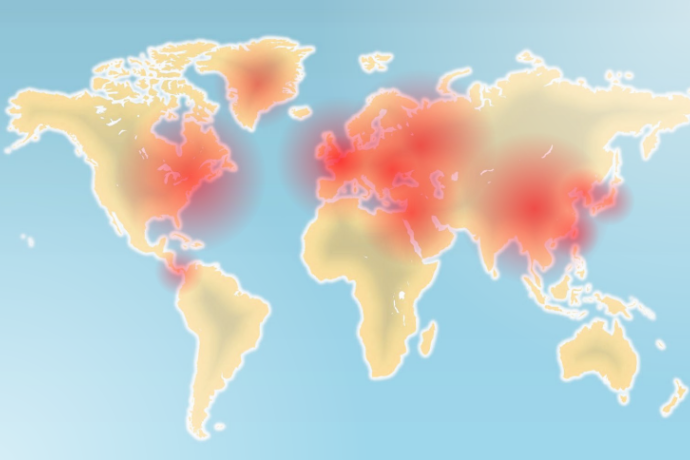What is at stake in the 2019 elections?

At the announcement of the July mid-term budget decisions, federal or regional governments qualified their decisions as “historic”. The reaction from civil society, media and the public was sceptical. It was suggested that decisions lacked vision and courage, and were insufficient to redress the impression that our various governments stalled in the last year, after a more ambitious start in 2014.
The divergence of opinion between politicians and popular media may be rather usual, but they indicate that opinions are based on different metrics; the suggestion is that democratic majorities tend to rely on vanity metrics when measuring their performance.
Itinera strives for better governance by Belgian authorities. Itinera’s modus operandi is to analyse policies and their outcomes with scientific rigour, and to put the facts and figures first. This allows Itinera to formulate policy recommendations based on scientific insights, and to promote best practices from comparable countries.
Itinera decided to highlight the international indexes that are published by institutions such as the World Bank, the World Economic Forum or the OECD, ranking the performance of countries in various fields. They quantify the performance of governments on an evidence-based basis. As from today, you can find 30 of these indexes on the Itinera website; we will update these regularly: https://www.itinera.team/nl/indices/
Belgium leads one of these indexes, the 2018 KOF Globalisation Index, published by the KOF Swiss Economic Institute of ETH-Zurich. Clearly, one of the consequences of our “open economy” is that the way heads of state and international business executives regard Belgium, is a crucial factor for the sustainability of our prosperity. Vanity metrics won’t be helpful.
The main lesson of these indexes is that Belgium is not catalogued as a top notch-country. In indexes that aggregate a broad number of indicators, we find ourselves lagging behind in comparison with neighbouring countries. We hold the 20th place in the WEF-Competitiveness Index, with the Netherlands and Germany in place 4 and 5, and we are stuck in the 52nd place in the Ease of doing business Index of the World Bank, in the neighbourhood of countries such as Hungary, the Russian Federation and Bulgaria that surprisingly precede Belgium.
The second inference is that other countries are actively reforming and improving. Belgium has to move ahead robustly in order to prevent that other countries ameliorate their position and Belgium tumbles down further.
A saying in management sciences is that “the biggest room in a country is very often the room for improvement”. If Belgium wants to guarantee the current level of prosperity to its children and grandchildren, this should be the mantra of our leaders, and the result would be truly … historic. That is what is at stake in the next federal and regional elections.
The divergence of opinion between politicians and popular media may be rather usual, but they indicate that opinions are based on different metrics; the suggestion is that democratic majorities tend to rely on vanity metrics when measuring their performance.
Itinera strives for better governance by Belgian authorities. Itinera’s modus operandi is to analyse policies and their outcomes with scientific rigour, and to put the facts and figures first. This allows Itinera to formulate policy recommendations based on scientific insights, and to promote best practices from comparable countries.
Itinera decided to highlight the international indexes that are published by institutions such as the World Bank, the World Economic Forum or the OECD, ranking the performance of countries in various fields. They quantify the performance of governments on an evidence-based basis. As from today, you can find 30 of these indexes on the Itinera website; we will update these regularly: https://www.itinera.team/nl/indices/
Belgium leads one of these indexes, the 2018 KOF Globalisation Index, published by the KOF Swiss Economic Institute of ETH-Zurich. Clearly, one of the consequences of our “open economy” is that the way heads of state and international business executives regard Belgium, is a crucial factor for the sustainability of our prosperity. Vanity metrics won’t be helpful.
The main lesson of these indexes is that Belgium is not catalogued as a top notch-country. In indexes that aggregate a broad number of indicators, we find ourselves lagging behind in comparison with neighbouring countries. We hold the 20th place in the WEF-Competitiveness Index, with the Netherlands and Germany in place 4 and 5, and we are stuck in the 52nd place in the Ease of doing business Index of the World Bank, in the neighbourhood of countries such as Hungary, the Russian Federation and Bulgaria that surprisingly precede Belgium.
The second inference is that other countries are actively reforming and improving. Belgium has to move ahead robustly in order to prevent that other countries ameliorate their position and Belgium tumbles down further.
A saying in management sciences is that “the biggest room in a country is very often the room for improvement”. If Belgium wants to guarantee the current level of prosperity to its children and grandchildren, this should be the mantra of our leaders, and the result would be truly … historic. That is what is at stake in the next federal and regional elections.



